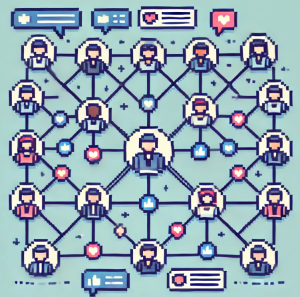
The Thrill of Almost: What Wordle Can Teach Us About Motivation
Imagine the satisfaction of solving a puzzle or nearly reaching a goal. You feel energized, motivated, and hopeful. But what about when you’re so close to winning, only to fall short by one tiny step? That near-win, known as a “near-miss,” is a powerful experience—and it might hold the key to understanding why we often push harder when we’re almost at the finish line.
Recent research using the popular word game Wordle has shed new light on why near-misses stir up such strong emotions, including motivation, frustration, and excitement. This simple yet addictive game, with its familiar colored blocks and limited guesses, is revealing deep truths about how our brains process almost-successes and failures. Whether it’s a slot machine, a sports match, or a personal goal, near-misses impact our motivation and drive in ways that go beyond simple win-or-lose scenarios.
Close, But Not Quite: The Power of Near-Misses
In Wordle, players have six tries to guess a five-letter word, with each guess providing clues. Letters in the correct place light up in green, correct letters in the wrong position turn yellow, and incorrect letters remain gray. Each attempt can either bring you closer to success or remind you how far you still have to go. Near-misses, such as having four out of five letters correct but in the wrong order, leave players teetering on the edge of a win—so close, yet just out of reach.
Researchers found that these near-misses in Wordle aren’t just mildly frustrating; they trigger significant spikes in motivation. When a player gets close to the right answer, excitement and anticipation build. But if they don’t quite reach the goal, that energy turns into a powerful mix of motivation and frustration, driving them to try again. This effect mirrors what happens in high-stakes games like slot machines, where a near-jackpot keeps players hooked and eager for the next spin.
The Emotional Rollercoaster: Why Near-Misses Feel So Intense
Let’s picture this: you’re on your fifth guess in Wordle, with just one last chance. You’re one letter away from the solution. Your heart races, your palms might sweat, and you’re ready to make that final guess. You’re motivated, even excited, because a near-miss feels like a step forward. According to this study, it’s not just about winning or losing—it’s about the journey toward a goal.
This intense emotional response isn’t unique to Wordle. Slot machine players often experience similar surges of arousal when they see symbols line up almost perfectly, making them feel that the big win is just around the corner. These players tend to press the spin button harder and faster after a near-miss, showing that even “losing” outcomes can make people want to play again, just as much—or sometimes more—than a win.
Goals, Motivation, and the “Almost There” Effect
Imagine climbing a mountain and seeing the peak within reach. You’re tired, maybe even exhausted, but the sight of that goal reignites your energy. Psychologists call this the “goal gradient effect,” where motivation increases as we near a goal. Wordle offers a digital version of this effect, with each correctly guessed letter as another foothold toward the summit.
Researchers in this study observed that players’ motivation and positive emotions spiked when they made progress in Wordle, with near-misses acting as powerful motivators. This is why people often feel more motivated to push harder when they’re close to success—even if it’s something as simple as a game. These findings show how our brains respond to progress and setbacks in real-time, learning from each step to fuel our drive forward.
Why Understanding Near-Misses Matters in Real Life
These insights go beyond Wordle. In the world of gambling, near-misses in slot machines have been shown to keep players engaged, leading them to believe they’re just one spin away from a win. However, this belief can sometimes feed into dangerous gambling behaviors, as players convince themselves that success is just around the corner, even when it’s not.
For non-gamblers, near-misses still play a huge role in everyday life. Think about someone training for a marathon, only to narrowly miss their personal best time. They might feel disappointed but also fired up to improve and try again. Or consider a student aiming for an A who just misses the grade. That near-miss can feel painful, but it can also inspire them to work even harder next time. The way our brains handle near-misses can either help us persevere or lead us into cycles of frustration, depending on how we interpret them.
The Science Behind Near-Misses: Wordle as a Window into the Mind
By studying players’ reactions to different outcomes in Wordle, researchers uncovered patterns that deepen our understanding of motivation and frustration. They observed that near-misses were particularly arousing, creating an emotional high even though they didn’t result in a win. The anticipation of potentially reaching the goal fuels positive emotions, which in turn drive motivation.
Interestingly, not all near-misses were equal. When players felt they were getting closer to the solution, they reported feeling more excited and motivated. But when their progress stalled, the frustration of being “so close yet so far” set in, decreasing their enjoyment and dampening their motivation. This contrast between approach and thwarted near-misses helps explain why people sometimes lose hope and give up—or double down and try harder.
A Word to the Wise: Applying Wordle Insights to Achieving Personal Goals
So, what can Wordle teach us about personal growth? When we pursue goals, from fitness milestones to career achievements, we encounter both wins and setbacks. Embracing near-misses as learning moments rather than seeing them as pure failures can change how we approach challenges. Wordle reminds us that even small steps toward a goal are worth celebrating, keeping us moving forward even if the ultimate victory isn’t immediate.
By recognizing when we’re close and letting that motivate us, we can avoid the pitfalls of frustration. Instead, we can use those moments as fuel to try again. So, next time you feel frustrated by a near-miss, whether it’s missing a promotion, a personal best, or a game victory, remember that your brain is wired to interpret that closeness as motivation. Just like in Wordle, each attempt brings you a little closer, even if the final goal is still a guess away.
Join the Conversation
- Have you ever experienced a near-miss that fueled your motivation? How did it impact your drive to keep going?
- How might these insights on near-misses help you approach personal or professional challenges differently?
Join the Science Adventure:
Stay updated with the latest discoveries in science! Our weekly newsletter is perfect for teachers and science enthusiasts. Get the newest research, major breakthroughs, and fascinating stories delivered to your inbox for free. Enhance your teaching and learning. Subscribe today! If you liked this blog, please share it! Your referrals help This Week in Science reach new readers.



